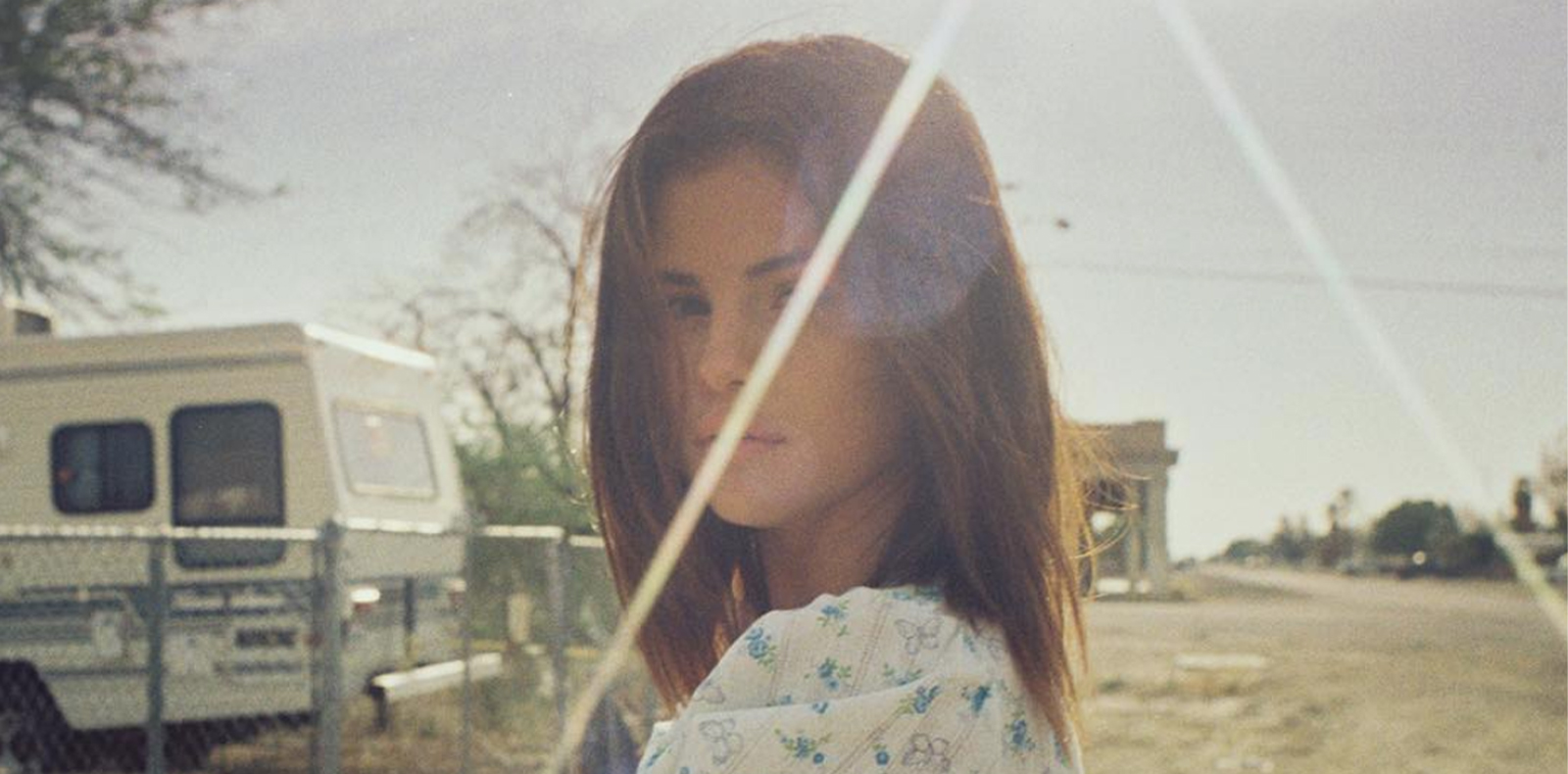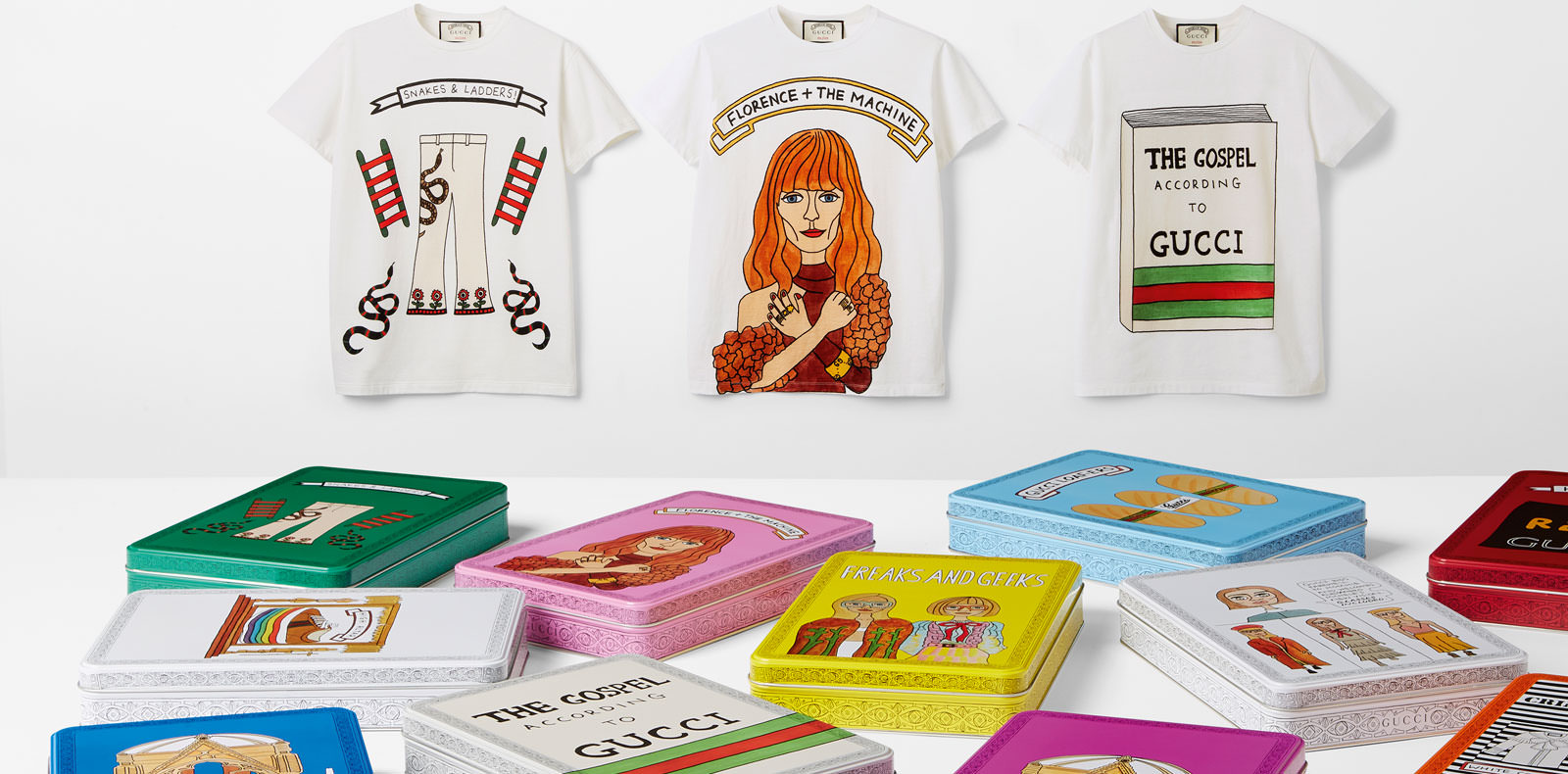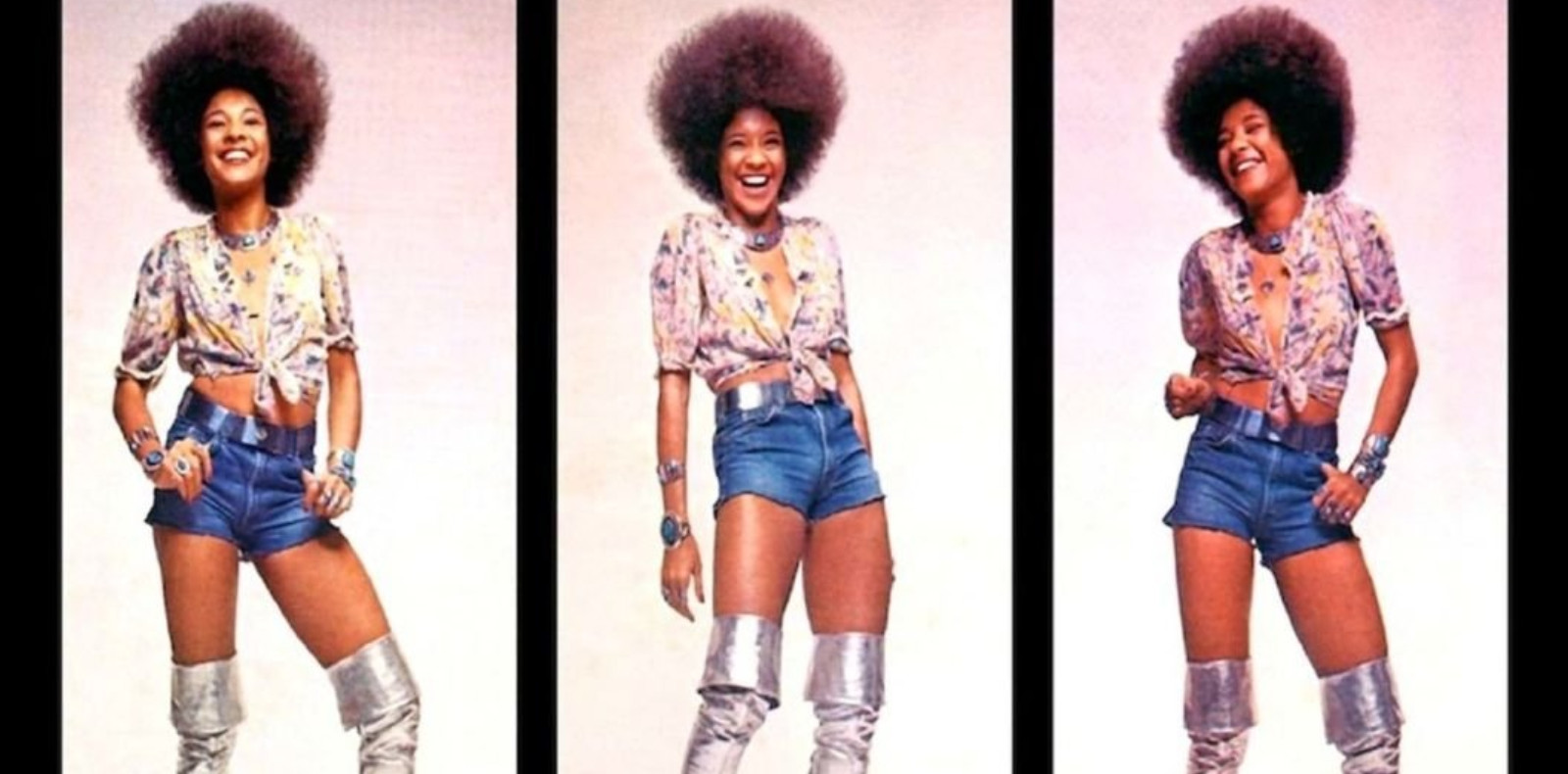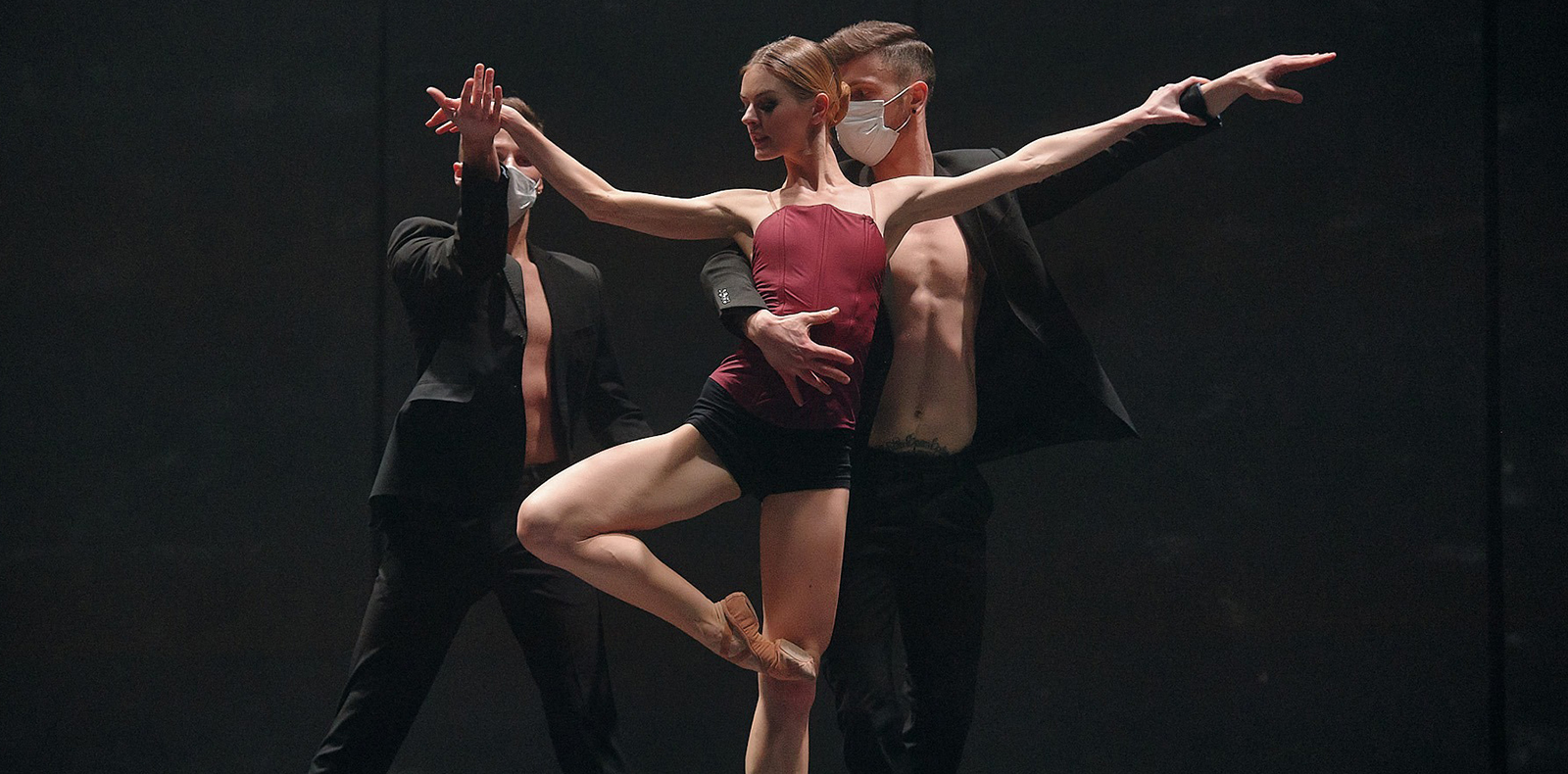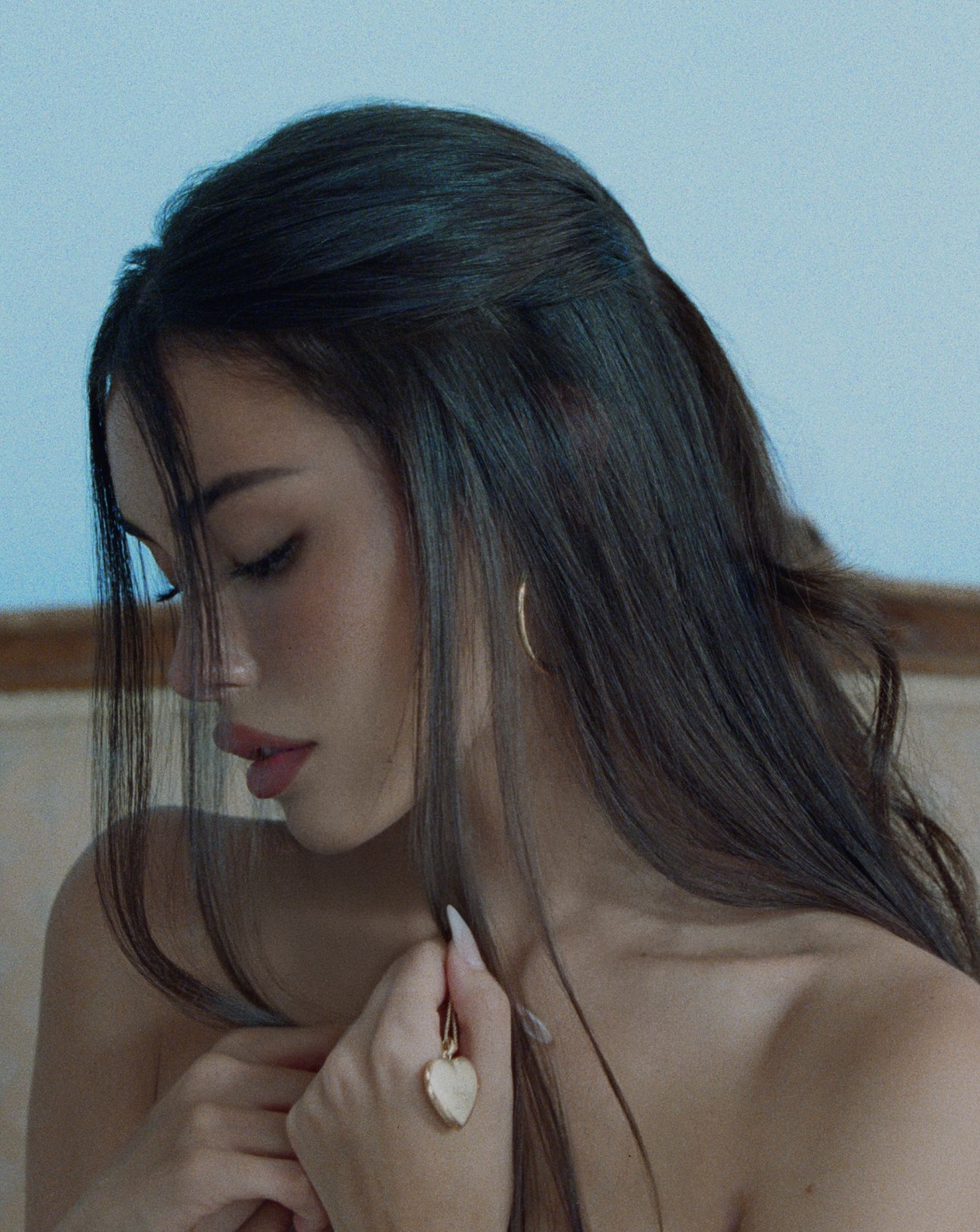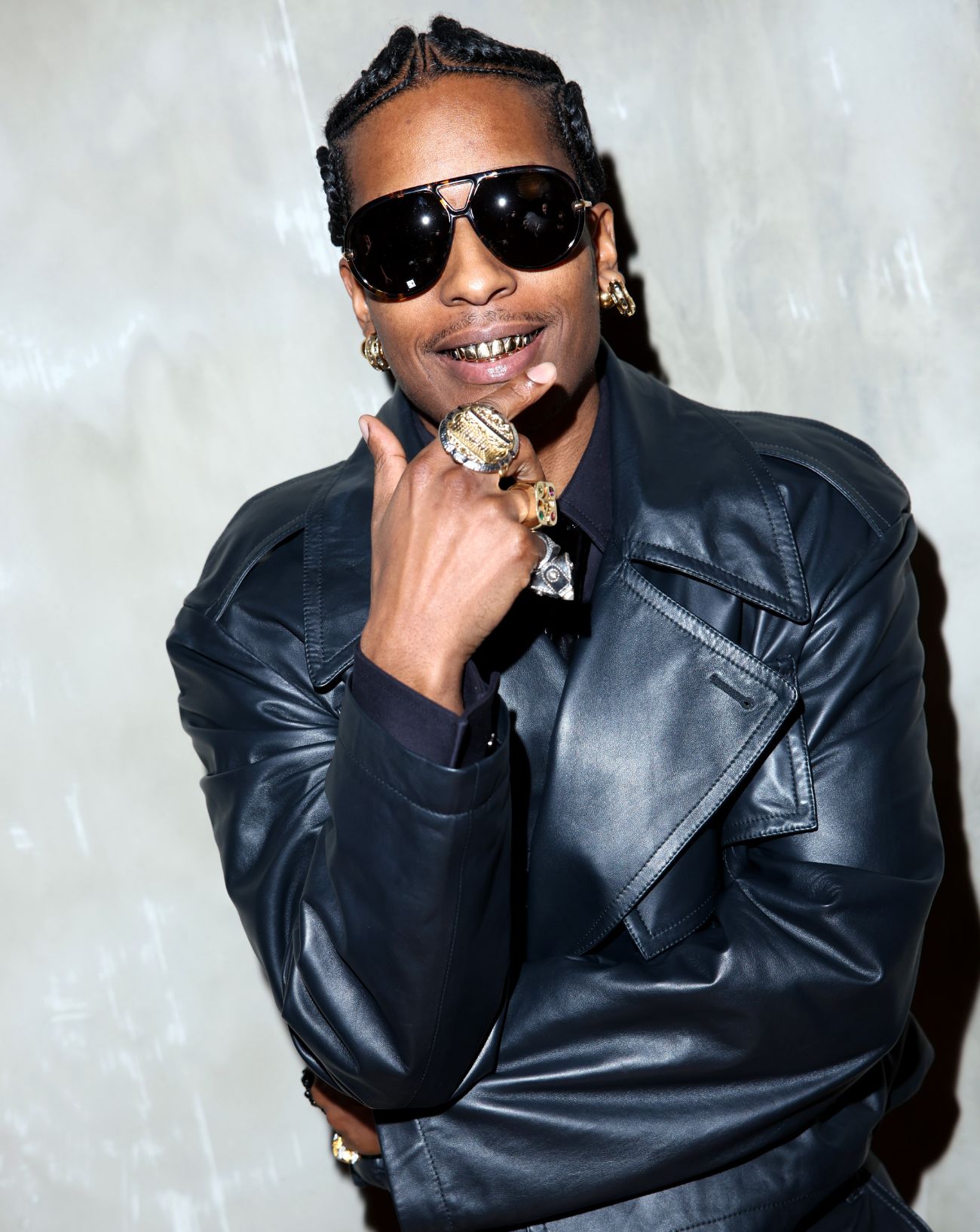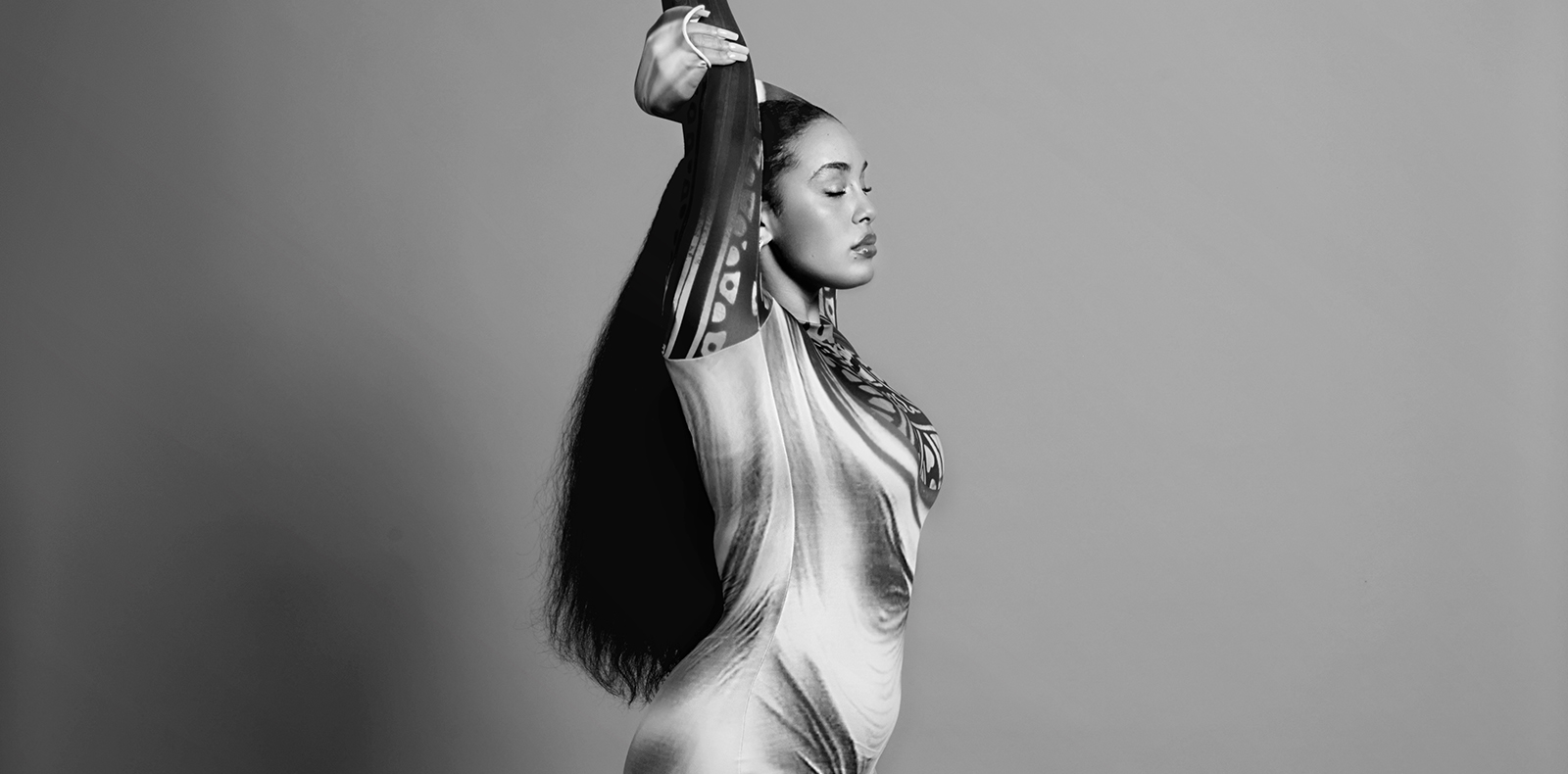
22

22
Interview with Jorja Smith: “I feel blessed to be able to help people feel less alone”
On May 3rd, 2024, British R’n’B phenomenon Jorja Smith released Falling of Flying (Reimagined), a re-recorded and jazzier version of her latest bold pop, house, soul and rock album, Falling of Flying. Numéro has met the singer for an interview in which she addresses the chaos that surrounds us, her return to her hometown and the weight of judgments.
Interview by Violaine Schütz.
Published on 22 May 2024. Updated on 20 June 2024.
She has been compared to Lauryn Hill and to her idol Amy Winehouse, and she admires Alicia Keys and Rihanna. But make no mistake, Jorja Smith is like no other. Since her smashing debut in 2016 with the single Blue Lights, a moving anthem against police violence, the 26-year-old English singer has imprinted her sensual, soulful voice, her authenticity and her beautiful face on R’n’B music at a global scale. After a splendid debut album, Lost & Found, which quickly found its audience, and collaborations with Drake, Burna Boy, Kendrick Lamar, Stormzy and Kali Uchis, the artist has now opened a new chapter in her already very busy life.
In September 2023, the woman who has walked for Marine Serre and posed as Dior’s make-up ambassador released Falling or Flying, a languorous and daring record about love and “baring your soul in a very critical world, when (you’ve) always been (your) first critic”, set against a backdrop of pop, house, rock and R’n’B. As she released Falling of Flying (Reimagined), a re-recorded version of her latest album, Numéro met this powerful yet vulnerable Gen Z icon, followed by almost 4 million fans on Instagram, for an intimate interview.
Interview with singer Jorja Smith about her album Falling or Flying
Numéro: Why did you choose to title your new album Falling or Flying?
Jorja Smith: There’s a song on the album called Falling or Flying, but the name of the album has nothing to do with that song. It came out of a conversation with one of my best friends. I was telling her how I was feeling, explaining that I didn’t know whether I was falling or flying. It’s a feeling that emerged almost three years ago, and I started to create that album around that time. I couldn’t tell whether or not I was doing well, whether I was happy or sad, whether I was losing or winning. The ones who know me well know that I’ve never really found myself in that in-between. I’m either one thing or the other. For instance, I’m either obsessed with something, or can’t focus at all. The title also represents the album, because when you listen to it, it flies, then falls, then topples over again, like a rollercoaster. So listening to it might make you want to laugh and cry at the same time.
How did this album come about?
This is the first time I’ve started an album almost from scratch. I only had about three songs already written. I created this record with my producer friends from the duo DameDame in a quite free and organic way, with no deadlines. I’ve known one of the members since I was 15. We just got together and had fun. We ate, talked and spontaneously wrote songs. Lost & Found, the first album I released in 2018 was imagined very differently, as a collection of songs that I had already performed on stage and wrote between the ages of 16 and 18. I started singing at a very young age, especially in front of an audience, without necessarily wanting to become famous for it.
Where does the inspiration for your lyrics stem from? They address themes such as complicated feelings of love, the judgment of others, and the chaos that surrounds us…
I drew my inspiration from life in general, from conversations I’ve had with friends about what’s happening in the world and from my existence. I asked myself, “How do we feel?”, “How do I feel?” Releasing this album is like closing a book, or rather a diary. I feel like writing these songs has made me become a woman. I was really a child at the time Lost & Found came out in 2018. I’m still young though, I’m 26, but I know more about who I am today. I feel like I’ve been through a lot since I started in the music industry. Life has changed so much and I have changed too, whether it is in the way I deal with things or how I set limits for myself. There are so many different viewpoints and feelings I want to talk about today.
Now that I have moved back to my hometown, I feel less stressed about not releasing new music at a rapid pace.” Jorja Smith
Are all the songs about you?
Not all of them. I also get inspired by people, even if when I listen to these songs again afterwards, it feels like I’m singing them for myself. Take the song She feels, for instance. Originally, I was talking about a friend. Then, as I started singing it in front of my mirror while doing my hair, I thought: “Oh, my God, I’m singing it to myself.” Even if I try to write about other people, it always ends up being about me (laughs).
In 2021, you left London, where you had been living for a while, and decided to move back to your hometown, Walsall, in the West Midlands, 150 miles away from the British capital… I moved to London when I was 18. I just wanted to explore, get out and experience life. I thought that I needed to be in a big city to do music. A lot of my friends also moved to London, so I wasn’t alone there. I made new friends too. Then everything ramped up very quickly with the release of Blue Lights in 2018 on streaming platforms. I went on tour, so I was away from my apartment for quite a while, always busy and moving at a frantic pace. In 2020, the covid pandemic happened and I spent the lockdown in London. At that point, I think that I associated very negative feelings with the city. So I felt the need to go back home, where I grew up. Anyway, home had been calling me back for ages.
You missed your hometown…
Yes, I really missed home. Now that I’m back, I feel like I have a new-found balance. I feel less stressed about not releasing new music at a rapid pace. This is my home, so I don’t feel anxious or nervous. I don’t know if it was because of the constant noise, or the fact that I couldn’t see the sky, but I felt a lot of pressure when living in London. I love London and I love everything it has given me. I love spending the night out when I’m there. But working with my friends from DameDame took me back to my teenage years, and reconnected me with my younger self. I remembered who I used to be before I moved to London. I used to play the piano all the time, go for walks alone or with my dog. I’ve taken up the piano again since I came back. Life is slower here. Everything’s calmer. Everyone knows everyone else.
Music is there for you to interpret as you see fit, whether it makes you cry, smile, or feel less alone.” Jorja Smith
Do you read the comments made about your songs on YouTube or elsewhere?
I’m so lucky to be able to help people feel less alone through my music, and most of the comments I receive are kind ones. But the problem is that when you read nice comments, you’re bound to come across a negative one and if I’m having a bad day, it can really get me down. Fortunately, my manager sent me some screenshots of beautiful comments that really moved me.
Many people online have shared that your songs have helped them heal from a heartbreak. Do you think about how your songs will be received when you write them?
I feel that whatever you do, someone will always have an opinion, a comment or understand something that may not be wrong, but will change the original meaning or what you actually wanted to say. And that vagueness is what I love about music. That’s why it exists. Music is there for you to interpret as you see fit, whether it makes you cry, smile, or feel less alone. A lot of people interpret my single Go Go Go as a breakup song.
It can also be seen as an empowering song…
Yes, it wasn’t a breakup song in my mind when I imagined it. It’s a song that means “fuck you.” For this track, I asked myself, “why can’t I just hang out with someone without them feeling the need to talk about our relationship to others?” and “why do people need to gossip about others?” Yet, everyone can hear what they want in it. The same thing happened to me when I was listening to Stronger Than Me (2003) by Amy Winehouse as a child. As I sang along, I didn’t quite understand what she was talking about. Then, one day, when I was 18 or 19, I started talking to boys and had my first relationship, so I listened to that song differently. A lot of things were going on in my head as I listened to the lyrics. It’s amazing how a song can radically change its meaning when you rediscover it ten years later and then go through the same thing as its author did when she wrote it.
I just want to take people on a journey with my songs, whether they’re thinking about their present, past or future.” Jorja Smith
On your new album, we can hear a wide range of sounds from R’n’B to pop and rock…
I listen to a lot of different genres. If I like a specific sound, I’m going to want to sing to it. Some people might say, “Oh, I didn’t expect that song from you. It doesn’t sound like you.” But if they knew me well, they would know that this is not so unexpected of me. I am my music, so it sounds like me. It’s not just a job. There are so many different genres that I love, so I don’t want to pigeonhole myself.
Your music videos are well thought-out, especially the one for Try Me, in which you embody a bullfighter dominating a dancer who personifies “the world and its opinions beyond my control” in a limestone quarry in Les Baux-de-Provence, a town in the South of France…
There are no rules regarding my music videos. Try Me was the first single from my album, so I released this wild, incredible, abstract and very thought-out video, with a narrative that wasn’t rooted in reality. But then, when I released the video for Little Things, which plunges us into a party where you can seduce anyone with a single glance, and the one for Go Go Go, shot in Marseille, in which I wear one look only. I was gradually craving small elements that felt real. I don’t need to act in my videos, I just need to be myself. I like to be myself and that’s what I have recently realized.
What message are you trying to convey through your music?
I just want my music to exist so that people who listen to it can feel something, whether it’s joy, nostalgia or the desire to change something in their lives, and maybe feel what I’ve experienced too. Since I started out, I’ve just wanted to take people on a journey with my songs, whether they’re thinking about their present, past, future, or want to send that song to someone because they feel it will help them have a good day or get through a difficult situation. I’ve already found myself in a situation where I would play my music in front of someone who wasn’t a fan, and wasn’t really listening to me. Then that person changed their mind and said, “Oh my God, you’re talking to me now.” I hope I can connect with people that way.
Falling of Flying (Reimagined) (2024) by Jorja Smith, available now.
Traduction Emma Naroumbo Armaing






